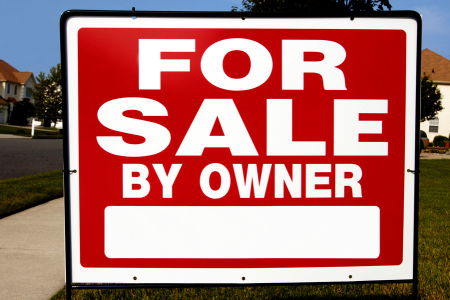A Guide For Selling A House During Divorce In Texas
Selling a property during a divorce can be an emotional and difficult experience, which can further increase the stress. However, for those who are going through a divorce in Texas, specific strategies can be employed to maximize profits when selling a property.
The timing of the transaction is a critical variable that must be assessed. In Texas, it is not uncommon for couples to have joint ownership of their property, which requires the consent of both parties to the sale.
It is imperative to work together and develop a mutually beneficial strategy. Additionally, hearing advice from professionals with experience with divorce issues can substantially facilitate the process of navigating a divorce and ensure a successful transaction.
An additional critical factor to consider is the property’s appropriate pricing in accordance with market value and the avoidance of emotional attachments to the property. By adhering to these guidelines and seeking professional assistance, individuals can effectively sell their property during a divorce in Texas.
Table of Content
- Navigating The Legal Process Of Selling A House During Divorce In Texas
- The Impact Of Divorce On The Sale Of Your Home In Texas
- Understanding Community Property Laws And Selling A House During Divorce In Texas
- Splitting Assets: Negotiating The Sale Of Your Home During A Texas Divorce
- Dealing With Emotions: Staying Focused On Selling Your House During Divorce In Texas
- Diy Or Professional Help? Deciding How To Sell Your House During A Texas Divorce
- The Importance Of Accurate Valuation When Selling A House During Divorce In Texas
- Marketing Strategies For Selling Your House Quickly During Divorce In Texas
- Is It Better To Sell Your House Before Or After A Divorce?
- What Is The 10-Year Rule In Divorce In Texas?
- Who Has To Leave The House In A Divorce In Texas?
- Can I Sell My House Without Spousal Consent In Texas?
Navigating The Legal Process Of Selling A House During Divorce In Texas

The process of selling a property in Texas during a divorce can be intricate and overwhelming. Additionally, you must negotiate the legal process of selling your shared property, in addition to addressing the emotional aspects of terminating a marriage.
This involves potential negotiations with your ex-spouse for their share of the proceeds, understanding community property laws, and determining ownership rights. It is essential to work with an experienced attorney who can offer legal advice and ensure that the sale of your property is conducted correctly.
Additionally, it may be beneficial to seek the advice of a financial advisor or real estate professional who can help optimize profits and prevent potential conflicts during this challenging time.
The Impact Of Divorce On The Sale Of Your Home In Texas
Divorce can have a significant impact on the sale of your Texas residence. It not only introduces legal complexities that must be meticulously navigated, but it also adds an emotional and financial burden.
Typically, both parties endeavor to maximize their profits from the sale of their divided property during a divorce. This can be challenging, as emotions may be high and negotiations may become challenging.
However, understanding the unique laws and regulations that govern real estate and divorce in Texas can increase the probability of successfully selling your property at a fair price. This exhaustive guide will provide invaluable strategies and insights for optimizing profits during this challenging period, including accurately valuing the property and establishing ownership rights.
Understanding Community Property Laws And Selling A House During Divorce In Texas
When going through a divorce in Texas, it is important to understand community property laws and how they impact the sale of your house. In Texas, any property acquired during the marriage is considered community property and is subject to an equal division between both parties.
This includes the marital home, which can be a major asset in a divorce. It’s crucial to have a clear understanding of how community property laws work and how they affect the sale of your house.
This can help you make informed decisions and maximize profits during this challenging time.
Splitting Assets: Negotiating The Sale Of Your Home During A Texas Divorce

When going through a divorce in Texas, one of the biggest challenges is negotiating the sale of your shared assets, particularly your home. When selling your property, it is essential to adopt a strategic and clear perspective, as the division of assets can be a complex and emotive endeavor.
The primary objective when selling a property during a divorce should be to maximize profits. This involves meticulously evaluating all offers and potential purchasers.
It is also essential to communicate openly with your ex-spouse to agree on the terms of the sale. By adhering to these tips, you can ensure that both parties receive a fair share of the profits from the sale of your home during divorce in Texas.
Dealing With Emotions: Staying Focused On Selling Your House During Divorce In Texas
Divorce can be an emotional experience, and the additional responsibility of selling your property can complicate the situation. However, it is imperative to maintain your focus on the sale of your property during this time in order to maximize your profits.
In Texas, there are particular laws and regulations that must be followed when selling a property during a divorce. It is important to have a thorough understanding of these guidelines.
It may also be advantageous to seek emotional support from friends and family or engage in therapy to alleviate any feelings of sorrow, wrath, or frustration that may arise during this process. In order to ensure a successful sale of your home during a divorce in Texas and maintain emotional stability, it is crucial to prioritize the profits.
Diy Or Professional Help? Deciding How To Sell Your House During A Texas Divorce

One of the most significant inquiries that arises during a divorce in Texas is how to sell one’s residence. Numerous couples are uncertain as to whether they should undertake the task independently or seek assistance from a professional.
Although each option has its own set of advantages and disadvantages, the decision is ultimately contingent upon personal preference and individual circumstances. Selling your house independently, also known as “For Sale By Owner” (FSBO), can save money on real estate agent fees. However, it necessitates a significant amount of time and effort.
Conversely, employing a professional can alleviate a significant amount of tension and workload; however, it is not without a cost. It is crucial to meticulously evaluate all factors before making a decision, as it is essential to optimize profits during this challenging period.
The Importance Of Accurate Valuation When Selling A House During Divorce In Texas
The process of selling one’s property is one of the most significant obstacles to navigating a divorce in Texas. It is imperative to optimize your profits from the transaction, in addition to locating a purchaser.
This is the juncture at which precise valuation becomes indispensable. Accurate valuation is essential when selling a house during a divorce in Texas, as it determines the reasonable market value of a property.
You may undersell your property and forfeit potential profits without an accurate valuation. In contrast, an exaggerated valuation of your residence may result in an excess of time spent on the market, which can result in additional expenses and tension.
As a result, it is essential to obtain an accurate valuation from a professional appraiser to ensure that you sell your property at the appropriate price and maximize your profits during this challenging period.
Marketing Strategies For Selling Your House Quickly During Divorce In Texas

In Texas, selling one’s property quickly may be a primary concern during a divorce. This is why it is imperative to establish effective marketing strategies.
One approach to attracting potential buyers and maximizing profits is to showcase the unique features of your property through high-quality photos and virtual excursions. Additionally, using social media platforms like Facebook and Instagram can broaden one’s audience and pique their interest. It’s also recommended staging the home and determining the appropriate price.
An alternative method is to arrange private showings or open houses to enable potential buyers to assess the property in person. These marketing strategies can be implemented to increase the probability of selling your house quickly and at a higher profit during a divorce in Texas.
Is It Better To Sell Your House Before Or After A Divorce?
Timing is of the essence when considering the sale of a property in Texas during a divorce. One of the most significant questions that arises during this process is whether it is more advantageous to sell your property before or after the divorce is finalized.
It is important to consider a diverse array of factors, such as the current real estate market, financial implications, and emotional preparedness, as there is no universal solution.
By understanding the benefits and drawbacks of each alternative, you can make an informed decision that will ultimately yield the highest possible profits from the sale of your residence.
What Is The 10-Year Rule In Divorce In Texas?
One of the most critical factors to consider during a divorce in Texas is the 10-year rule. This regulation pertains to the division of assets, with a particular emphasis on residential properties.
The house is regarded community property and will be divided equally between both parties if a couple has been married for 10 years or longer. However, the residence may be regarded as separate property and only one spouse may be entitled to it if the marriage lasted less than 10 years.
This underscores the significance of timing in the context of selling a property during a divorce in Texas, as it can significantly affect your profits. It is important to understand the 10-year rule to ensure a fair distribution of assets during this challenging time.
Who Has To Leave The House In A Divorce In Texas?
Who has to leave the house is one of the most pressing concerns during a divorce in Texas. There is no universal answer, the ultimate decision is contingent upon the unique circumstances and agreements that the divorcing parties have reached.
In certain cases, both spouses may choose to sell the property and divide the proceeds, while in others, one party may acquire the other’s share. Additionally, if there are children involved, the individual who is permitted to reside in the house may be influenced by custody arrangements.
It is important that couples in Texas who are in the process of divorcing conduct a thorough assessment of all available options to negotiate a mutually advantageous agreement regarding their shared property and living arrangements.
Can I Sell My House Without Spousal Consent In Texas?
The administration of shared assets, such as a property, is often one of the most significant concerns during a divorce in Texas. There are numerous individuals who are uncertain about the feasibility of selling their residence without the consent of their spouse.
In Texas, if the house is classified as community property and both parties are listed on the deed, the sale of the house is subject to the agreement of both spouses.
Comprehending the laws and procedures of Texas is essential for the successful sale of your home and the continuation of your life.
If you are looking to sell your house during a divorce in Texas, Texas Cash House Buyer has your back. We buy houses during divorce all the time. We have helped several couples in this situation. We operate through all Texas, including cities like Dallas, Fort Worth, Arlington, Plano, Irving, and Frisco. Contact us and get an offer today!

